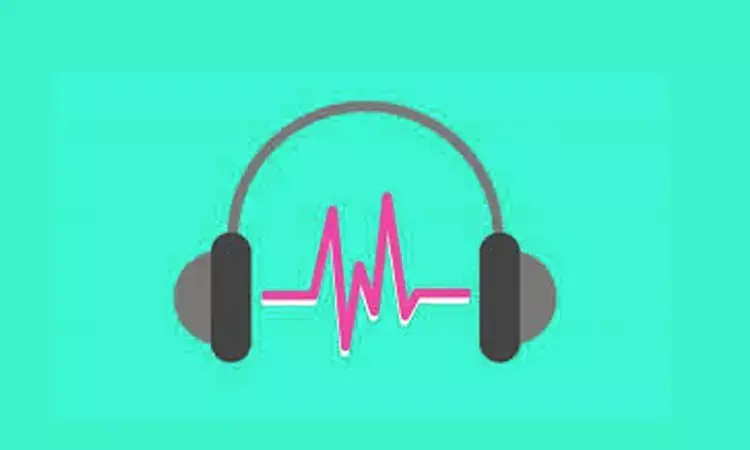- Home
- Medical news & Guidelines
- Anesthesiology
- Cardiology and CTVS
- Critical Care
- Dentistry
- Dermatology
- Diabetes and Endocrinology
- ENT
- Gastroenterology
- Medicine
- Nephrology
- Neurology
- Obstretics-Gynaecology
- Oncology
- Ophthalmology
- Orthopaedics
- Pediatrics-Neonatology
- Psychiatry
- Pulmonology
- Radiology
- Surgery
- Urology
- Laboratory Medicine
- Diet
- Nursing
- Paramedical
- Physiotherapy
- Health news
- Fact Check
- Bone Health Fact Check
- Brain Health Fact Check
- Cancer Related Fact Check
- Child Care Fact Check
- Dental and oral health fact check
- Diabetes and metabolic health fact check
- Diet and Nutrition Fact Check
- Eye and ENT Care Fact Check
- Fitness fact check
- Gut health fact check
- Heart health fact check
- Kidney health fact check
- Medical education fact check
- Men's health fact check
- Respiratory fact check
- Skin and hair care fact check
- Vaccine and Immunization fact check
- Women's health fact check
- AYUSH
- State News
- Andaman and Nicobar Islands
- Andhra Pradesh
- Arunachal Pradesh
- Assam
- Bihar
- Chandigarh
- Chattisgarh
- Dadra and Nagar Haveli
- Daman and Diu
- Delhi
- Goa
- Gujarat
- Haryana
- Himachal Pradesh
- Jammu & Kashmir
- Jharkhand
- Karnataka
- Kerala
- Ladakh
- Lakshadweep
- Madhya Pradesh
- Maharashtra
- Manipur
- Meghalaya
- Mizoram
- Nagaland
- Odisha
- Puducherry
- Punjab
- Rajasthan
- Sikkim
- Tamil Nadu
- Telangana
- Tripura
- Uttar Pradesh
- Uttrakhand
- West Bengal
- Medical Education
- Industry
Every heart dances differently to same music

Sophia Antipolis – Previous studies investigating physiological responses to music have measured changes in heart rate after listening to different recordings simply categorised as 'sad', 'happy', 'calm', or 'violent'.
Researchers have found in a new study that same piece of music played to two people evokes different response and their hearts may respond very differently.
This pioneering research revealed how music triggers individual effects on the heart, a vital first step to developing personalised music prescriptions for common ailments or to help people stay alert or relaxed.
That's the conclusion of a novel study presented today on EHRA Essentials 4 You, a scientific platform of the European Society of Cardiology (ESC).
"We used precise methods to record the heart's response to music and found that what is calming for one person can be arousing for another," said Professor Elaine Chew of the French National Centre for Scientific Research (CNRS).
This small study took a more precise approach, featuring several unique aspects. Three patients with mild heart failure requiring a pacemaker were invited to a live classical piano concert. Because they all wore a pacemaker, their heart rate could be kept constant during the performance. The researchers measured the electrical activity of the heart directly from the pacemaker leads before and after 24 points in the score (and performance) where there were stark changes in tempo, volume, or rhythm.
Specifically, they measured the time it takes the heart to recover after a heartbeat. "Heart rate affects this recovery time, so by keeping that constant we could assess electrical changes in the heart based on emotional response to the music," said Professor Chew.
"We are interested in the heart's recovery time (rather than heart rate) because it is linked to the heart's electrical stability and susceptibility to dangerous heart rhythm disorders," explained the project's medical lead Professor Pier Lambiase of University College London. "In some people, life-threatening heart rhythm disorders can be triggered by stress. Using music we can study, in a low risk way, how stress (or mild tension induced by music) alters this recovery period."
The researchers found that change in the heart's recovery time was significantly different from person to person at the same junctures in the music. Recovery time reduced by as much as 5 milliseconds, indicating increased stress or arousal. And recovery time lengthened by as much as 5 milliseconds, meaning greater relaxation.
Commenting on the individual nature of reactions, Professor Chew said: "Even though two people might have statistically significant changes across the same musical transition, their responses could go in opposite directions. So for one person the musical transition is relaxing, while for another it is arousing or stress inducing."
For example: a person not expecting a transition from soft to loud music could find it stressful, leading to a shortened heart recovery time. For another person it could be the resolution to a long build-up in the music and hence a release, resulting in a lengthened heart recovery time.
Professor Chew said: "By understanding how an individual's heart reacts to musical changes, we plan to design tailored music interventions to elicit the desired response."
"This could be to reduce blood pressure or lower the risk of heart rhythm disorders without the side effects of medication," added Professor Lambiase.
Professor Chew noted that while the number of patients in the study is small, the researchers amassed gigabytes of data. The results are currently being confirmed in a total of eight patients.
Dr Kamal Kant Kohli-MBBS, DTCD- a chest specialist with more than 30 years of practice and a flair for writing clinical articles, Dr Kamal Kant Kohli joined Medical Dialogues as a Chief Editor of Medical News. Besides writing articles, as an editor, he proofreads and verifies all the medical content published on Medical Dialogues including those coming from journals, studies,medical conferences,guidelines etc. Email: drkohli@medicaldialogues.in. Contact no. 011-43720751


